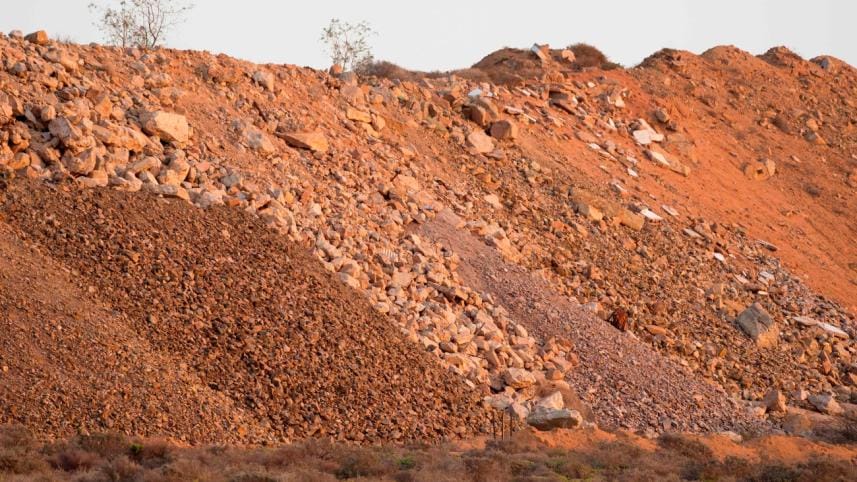5 reasons rare earths are key to the US-China rivalry

From smartphone chips to electric vehicle motors and fighter jet systems, rare earths are vital to modern technology. The 17 minerals, including neodymium, dysprosium, and terbium, are used in magnets, catalysts, and alloys powering clean energy and defense.
For Bangladesh, supply disruptions of rare earths could raise global component prices, inflating the costs of imported electronics and renewable technologies.
Tensions escalated this year as US President Donald Trump reignited a trade war with Beijing, making rare earths a key battleground. Already dominant in supply, China tightened controls on October 9 this year by adding five more elements to its restricted list and curbing exports of mining and refining equipment.
Here are five reasons why rare earths are so critical:
China's market leverage
China has clear market leverage in the rare earths sector. The Asian nation controls about 70 percent of rare earth mining, 85 percent of refining, and 90 percent of magnet production, making the minerals a geopolitical flashpoint.
The US, Australia, and Myanmar produce far less, while allies scramble for alternatives ahead of Beijing's 2025 restrictions.
Meanwhile, China's rare earth exports fell 6 percent year-on-year in September.
Fragile supply chains
Rare earths have a fragile supply chain. Because there are few substitutes and new mines take years to develop, even small supply shocks can stall production lines.
Meanwhile, Goldman Sachs has warned of a "risk of disruption" in rare earths and other key minerals.
If access tightens, automakers, electronics firms, and renewable energy manufacturers could face higher costs, delivery delays, and reduced output.
Clean energy at risk
Electric vehicles and renewable energy systems rely heavily on rare earth magnets, and clean energy sources are now at risk.
Reuters reported that global carmakers are "racing to beat China's rare earths deadline" as they fear supply bottlenecks could slow the rollout of electric cars, wind turbines, and solar technologies—undermining global climate transition goals.
Strategic and defense priority
Rare earths are not just about green technology; they are also critical for defense, powering missile guidance systems, radar, and stealth aircraft.
This dual-use role makes them a national security priority for Washington, which views dependence on China as a strategic vulnerability in any future conflict or geopolitical standoff.
Alliances to secure supply
According to a Reuters Breakingviews analysis, the recent US-Australia critical minerals pact highlights how rare earths have become a tool of resource diplomacy.
By pooling investment, technology, and supply agreements, Washington and its allies aim to reduce reliance on Beijing, diversify sources, and secure long-term access to critical materials.




 For all latest news, follow The Daily Star's Google News channel.
For all latest news, follow The Daily Star's Google News channel.
Comments